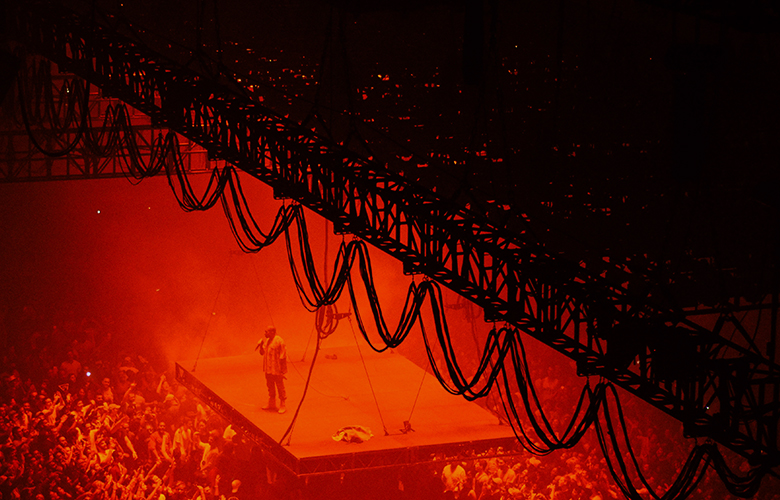
TheatreArtLife has connected with a number of Entertainment Riggers across the globe to bring you their stories, experience and advice on the very crucial roles and responsibilities Riggers hold in today’s industry. Brett Copes is based in the Greater Atlanta Area and is a Rigging Specialist. Here is his story:
I was a Boy Scout working on ROPES courses that became an Actor who worked at the Climbing Gym that became a Stuntman playing Superheros in a Stunt Show that became a Rigger for a Circus Camp that became a Rigger for a big Vegas Show… and beyond.
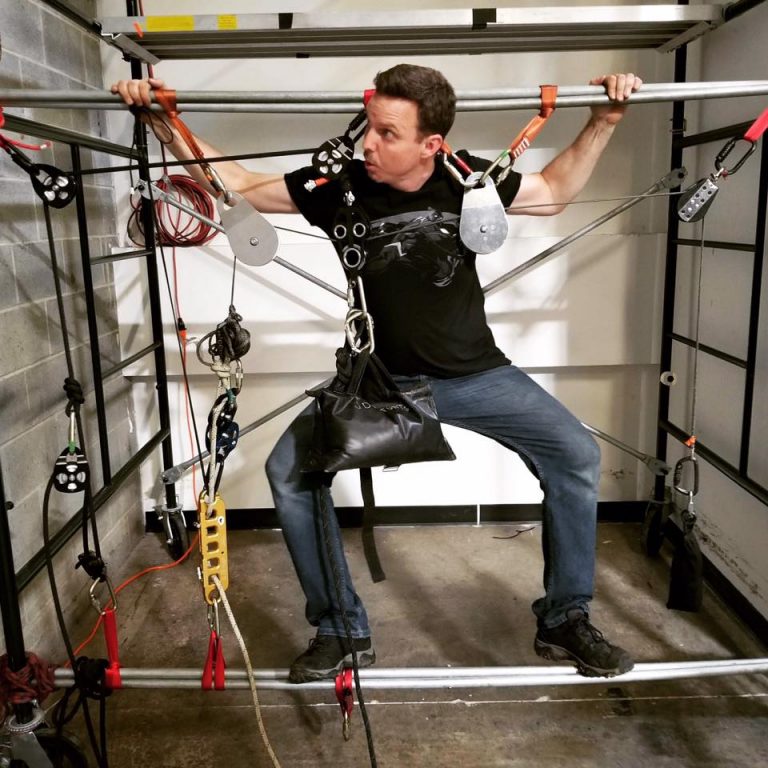
I like to take every class or workshop I can. I know I do not know everything and I want to fill up my Tool Box as best I can. I’ve taken SPRAT Rope Access courses, Stunt Rigging Courses, gotten Fall Protection certificates, flew people at Top Flight Academy, and attended the New World Rigging Conference.
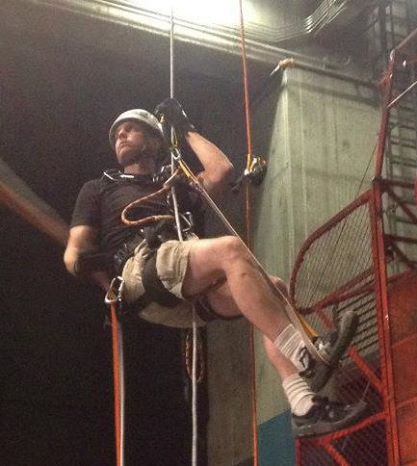
That is hard to pick, sometimes Rigging for one performer in a small show can bring all the best feelings from the audience and other times Big Snazzy shows pose the most problems to be solved, which is great if you like solving problems like I do. I think my favorite might be Rigging for Circus Festivals, where we have to come up with a plan that accommodates all the classes and workshops, all the shows, and 20 something different performers at a time.
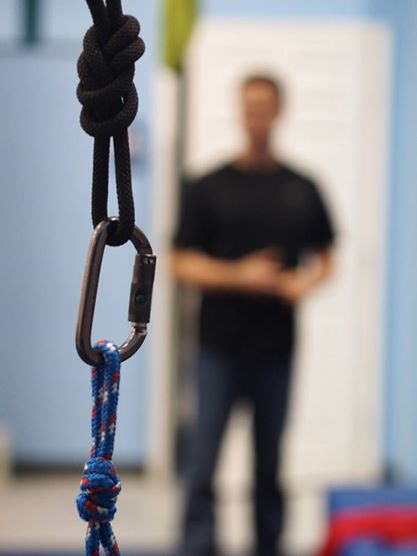
It’s really the right attitude and self awareness that makes the difference. Good Rigging that reduces risk for everyone. It does not need “experts” that already know everything. That’s one of the ways accidents happen, being “Over Confident”. Knowing what you know and knowing what you do not know, working within your skill set and learning to expand your skill set… those are the most important.
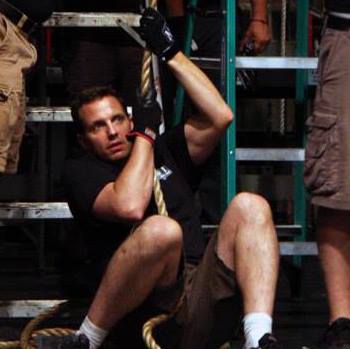
The term “Rigging” covers a lot of different jobs, Arena, Stunts, Flying Effects, Automation, Theatre, Circus, Rope Access…. so picking out which one you are interested in and putting in all the hands on work you can find is the way to go.
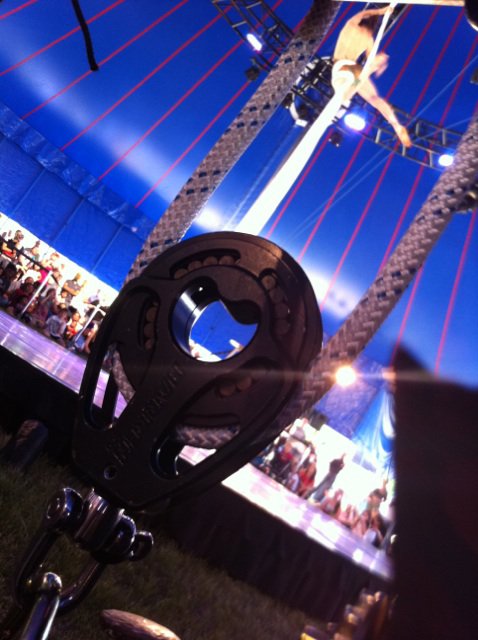
That is the hard one, because if I am lucky it is something new every day. Could be on a TV show, or in a Theatre…. or a Circus school.
Sort of, the people I worked for in my most formative years on those big Vegas shows… I think they were some of the best and smartest Riggers you can find and some of the most Elite Rigging Teams anywhere. So just by being a part of the Team, I learned so much from all of them. Then later, as I grew more experienced and schooled, we were able to be peers and work together on a whole different level.
No…. oddly anything I end up choosing to do that has any excitement to it, ends up becoming a job and new career direction. My newest favorite things to do are to work a lot less and kayak with my awesome dog.
Inside The Lives Of Entertainment Riggers: Andrew Mudie
Inside The Lives Of Entertainment Riggers: James Busby


Anna Robb is Co-Founder and Managing Director for TheatreArtLife. Anna is an experienced Producer/Production Stage Manager. Her 20-year work history spans Asia Pacific, the Americas, Africa, the Middle East and Europe. She has worked for companies such as Cirque du Soleil, Franco Dragone Entertainment Group, Christie Digital Systems and The Sydney Opera House. Anna was an integral part of the research and development, training and formation, creation and operation of the 250 million dollar aquatic show, The House of Dancing Water in Macau. She also maintained the daily operations of this complex show as the head of Stage Management for 7 years. Anna has been employed on over 70 shows in the areas of concerts, arena events, corporate events, trade shows, musical theatre, plays, dance, circus, outdoor festivals and mega shows. Anna holds a honours degree in Design for Theatre and Television and is passionate about the evolution of the industry.
Read Full Profile© 2021 TheatreArtLife. All rights reserved.

Thank you so much for reading, but you have now reached your free article limit for this month.
Our contributors are currently writing more articles for you to enjoy.
To keep reading, all you have to do is become a subscriber and then you can read unlimited articles anytime.
Your investment will help us continue to ignite connections across the globe in live entertainment and build this community for industry professionals.